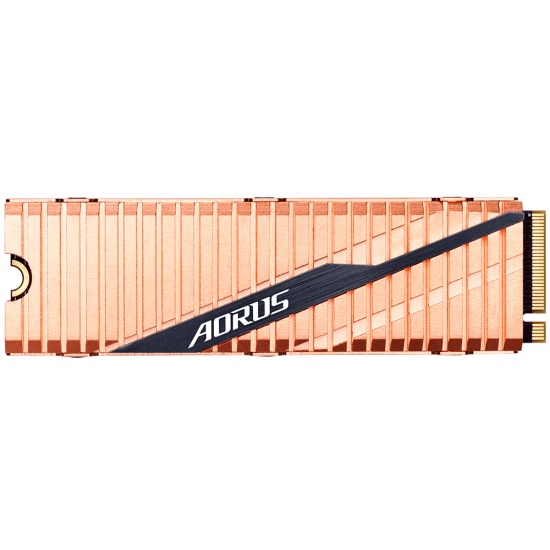
2TB Gigabyte AORUS NVMe Gen4 M.2 PCI Express 4.0 3D TLC Internal Solid State Drive by Gigabyte
- Be the first to review
- Item Number: 280-0280
- Part Number: GP-ASM2NE6200TTTD
Key Features
- 2TB Gigabyte AORUS internal solid state drive
- M.2 form factor
- PCI Express 4.0 interface type
- Read speed up to 5000MB/s
- Write speed up to 4400MB/s
See product description
-
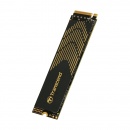 500GB Transcend M.2 2280 PCIe Gen4 x4 NVMe SSD 240S
500GB Transcend M.2 2280 PCIe Gen4 x4 NVMe SSD 240S
IN STOCK
€ 191.56 (incl. VAT) -
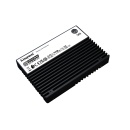 7.68TB Kingston Technology U.2 PCIe 5.0 NVMe Internal Solid State Drive
7.68TB Kingston Technology U.2 PCIe 5.0 NVMe Internal Solid State Drive
IN STOCK
€ 2,243.03 (incl. VAT) -
 250GB Samsung 870 EVO 2.5-Inch Serial ATA III V-NAND Internal Solid State Drive
250GB Samsung 870 EVO 2.5-Inch Serial ATA III V-NAND Internal Solid State Drive
IN STOCK
€ 149.03 (incl. VAT) -
 2TB Samsung 2.5-inch Serial ATA III V-NAND MLC Internal Solid State Drive
2TB Samsung 2.5-inch Serial ATA III V-NAND MLC Internal Solid State Drive
IN STOCK
€ 440.37 (incl. VAT) -
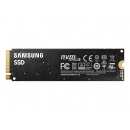 250GB Samsung 980 PCI Express 3.0 V-NAND NVMe Internal Solid State Drive
250GB Samsung 980 PCI Express 3.0 V-NAND NVMe Internal Solid State Drive
IN STOCK
€ 155.99 (incl. VAT) -
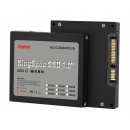 128GB KingSpec 1.8-inch SATA III 6Gbps SSD Solid State Disk (JMicron JMF608 Controller)
128GB KingSpec 1.8-inch SATA III 6Gbps SSD Solid State Disk (JMicron JMF608 Controller)
IN STOCK
€ 51.17 (incl. VAT) -
 1TB OWC Mercury Electra 3G 2.5" Serial-ATA 7mm Solid State Drive
1TB OWC Mercury Electra 3G 2.5" Serial-ATA 7mm Solid State Drive
IN STOCK
€ 108.32 (incl. VAT) -
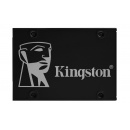 1TB Kingston KC600 2.5-inch Serial ATA III Internal Solid State Drive
1TB Kingston KC600 2.5-inch Serial ATA III Internal Solid State Drive
IN STOCK
€ 314.99 (incl. VAT) -
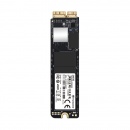 240GB Transcend JetDrive 850 Thunderbolt PCIe SSD Upgrade for Mac
240GB Transcend JetDrive 850 Thunderbolt PCIe SSD Upgrade for Mac
IN STOCK
€ 123.72 (incl. VAT) -
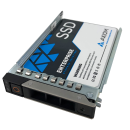 960GB Axiom 2.5Inch SAS V-NAND TLC Internal Solid State Drive
960GB Axiom 2.5Inch SAS V-NAND TLC Internal Solid State Drive
IN STOCK
€ 2,234.56 (incl. VAT) -
 8TB Samsung 870 QVO 2.5-inch Serial ATA III V-NAND MLC Internal Solid State Drive
8TB Samsung 870 QVO 2.5-inch Serial ATA III V-NAND MLC Internal Solid State Drive
IN STOCK
€ 1,876.88 (incl. VAT) -
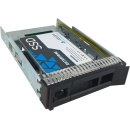 2TB Axiom 3.5 Inch Serial ATA Internal Solid State Drive
2TB Axiom 3.5 Inch Serial ATA Internal Solid State Drive
IN STOCK
€ 947.36 (incl. VAT) -
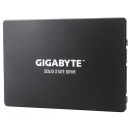 240GB Gigabyte 2.5-inch Serial ATA III Internal Solid State Drive
240GB Gigabyte 2.5-inch Serial ATA III Internal Solid State Drive
IN STOCK
€ 95.23 (incl. VAT) -
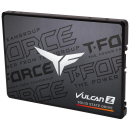 256GB Team Group T-Force Vulcan Z 2.5 Inch Serial ATA III 3D NAND Internal Solid State Drive
256GB Team Group T-Force Vulcan Z 2.5 Inch Serial ATA III 3D NAND Internal Solid State Drive
IN STOCK
€ 55.91 (incl. VAT) -
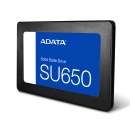 960GB AData SU650 2.5-inch SATA 6Gb/s SSD Solid State Disk 3D NAND
960GB AData SU650 2.5-inch SATA 6Gb/s SSD Solid State Disk 3D NAND
IN STOCK
€ 181.83 (incl. VAT)
World First PCIe 4.0x4 Controller
The World First PCIe 4.0x4 Controller, Phison PS5016-E16 controller, made by 28nm manufacturing technology. The advanced fabrication process ensures PS5016-E16 has enough compute power for ECC processing when adopting the latest 3D TLC NAND flash. PS5016-E16 also features eight NAND channels with 32 CE targets, DDR4 DRAM caching, and a PCIe 4.0x4 interface. As for features, the chip supports the NVMe 1.3 protocol, LDPC error correction, and Wear Leveling, Over-Provision technologies to improve reliability and durability of SSDs.
NAND Flash Selected for High Quality and Performance
TOSHIBA BiCS4 96 Layers 3D TLC (800MT/s)
Toshiba BiCS4 NAND Flash optimizes circuitry and architecture by increasing to 96 layers for higher storage space per unit area. 800MT/s throughput on the AORUS NVMe Gen 4 SSD far exceeds that of PCIe 3.0x4 devices for superior storage performance.
Xtreme Storage Performance
With the new PCIe 4.0 controller, AORUS NVMe Gen 4 SSD delivers blazing speeds: up to 5,000 MB/s for sequential read, and up to 4,400MB/s sequential write. Sequential Read performance of PCIe 4.0 SSDs is up to 40% faster than PCIe 3.0 SSDs. Get ready to enter the next generation of computing with faster and smoother, gaming, streaming, and graphics intensive rendering.
Full Body Copper Thermal Solution for Outstanding PCIe 4.0 SSD Performance
The Full Body Copper Heatsink takes into account the heat transfer from key components on both the front and back of the device, the controller and NAND Flash. Full copper heatsinks have 69% higher heat transfer capacity compared to aluminum heatsinks giving AORUS NVMe Gen4 SSD the best heat dissipation for read/write performance.
Efficient Copper Heat Spreader Design
Compared with a plated M.2 heat spreader, new efficient copper heat spreaders with 27 fins add more surface area which improve thermal transfer from heating sources to obtain thermal balance sooner. Moreover, Optimized fin array design does great heat exchange with any direction of air flow. Both unique design make sure key components of PCIe 4.0 SSD to keep suitable working temperature under ultra high transfer rate.
Why is keeping an SSDs at lower temperatures so important?
- Higher working temperature may cause data loss. The degradation factor of data loss could be a hundred times higher.
- With Full Body Copper Heat Spreaders, the AORUS NVMe Gen 4 SSD can operate at lower working temperatures to improve data storage reliability. Furthermore, SSDs can deliver extreme performance for longer periods.
SSD Tool Box
The newly updated SSD Tool Box is a software that gives users an overview of the SSD Status and various aspects such as model name, FW version, health condition and sensor temperature. Moreover, users can clear all the data with the Secure Erase function. You can download the SSD Tool Box from the link.
| CAPACITY | 2TB |
| INTERFACE TYPE | PCI Express 4.0 |
| FORM FACTOR | M.2 |
| DATA TRANSFER RATES | Read speed: 5000 MB/s Write speed: 4400 MB/s |
| RANDOM READ (4K) IOPS | 750000 IOPS |
| RANDOM WRITE (4K) IOPS | 700000 IOPS |
| FLASH STORAGE DETAILS | 3D TLC |
| OPERATING TEMPERATURE | 32 - 158 °F |
| MTBF | 1770000 h |
| TRIM SUPPORT | TRIM support |
| S.M.A.R.T. SUPPORT | S.M.A.R.T. support |
| SPECIAL FEATURES | S.M.A.R.T. support TRIM support |
| PACKAGING | Retail packaging |




